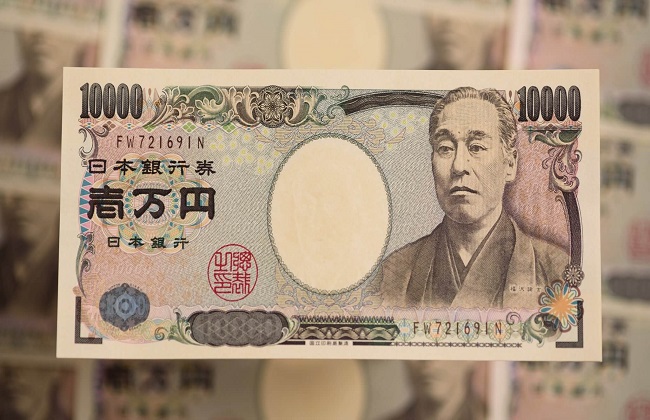Japanese Yen Plummets to 34-Year Low Against US Dollar amid Speculations of Central Bank Intervention
The yen's drastic drop to levels not seen since 1990 has sparked speculation on possible central bank action, rocking the currency markets and drawing global attention.
Published April 26, 2024 - 00:04am

Image recovered from shorouknews.com
The Japanese yen has significantly weakened, reaching a 34-year low at 155 against the US dollar, stirring concerns of potential intervention by the Bank of Japan to support the flailing currency. This comes as the central bank starts a two-day meeting to determine interest rate policies which are still under active discussion.
Despite trading within a narrow band in recent days, the dollar finally breached the 155 yen mark for the first time since the year 1990, settling at 155.74 yen at its peak today. The dollar index, which measures it against a basket of currencies, has experienced a slight decline to 105.77 points. The euro saw a marginal increase by 0.1 percent to $1.07085, while the British pound remained relatively unchanged at $1.24675.
The Australian dollar, boosted by reduced bets on an interest rate cut this year, rose 0.14 percent to $0.65065. Meanwhile, the New Zealand dollar edged up 0.03 percent to $0.5937.
As the yen faces downward pressure, it highlights the delicate balance central banks must maintain between interventionist policies and market-driven forces. The Bank of Japan's stance will be closely watched as the meeting concludes, particularly following last month's move away from negative interest rate policies and Governor Kuroda's hints at further rate hikes under inflationary pressures.
The dollar has shown resilience, recovering some losses against other major currencies following robust business activity data from the eurozone and the UK, which bolstered the euro and the pound earlier in the week.
In Asia, trading was subdued with Australian markets closed for a holiday. Speculations of Japanese government intervention to support the yen have ramped up, presenting a potential obstacle for the dollar's ascent mirrored against previous market behaviors on critical intervention thresholds identified by traders.
The deteriorating value of the Japanese yen has augmented the probability of intervention not only through interest rate adjustments but also through direct market actions. Historically, Japan has intervened in the currency market to curb excess volatility and rapid movements in the yen value that may negatively impact the Japanese economy, heavily reliant on exports.
However, the Bank of Japan (BoJ) faces a complex scenario where inflation is not as pronounced as in the United States and Europe, but the weak yen pushes up the cost of imports, potentially stoking inflationary pressures. Governor Kuroda’s remarks in the past have underscored this delicate situation, as they seek to support economic recovery while keeping an eye on rising price levels.
Market analysts are closely monitoring the BoJ's monetary policy tools, including yield curve controls, particularly the 10-year Japanese government bond yields. Any shift in these tools could signal a new direction in Japan's approach to its currency and interest rate policies. Such shifts can have significant effects on global currency markets, as Japan's economy remains one of the largest and most interconnected in the world.
In addition to interest rate discussions and potential interventions, geopolitical tensions and the residual effects of the COVID-19 pandemic continue to influence currency valuations. Investors often view the US dollar as a safe-haven investment amid global uncertainty, which can increase its value relative to other currencies, including the yen.
Furthermore, energy prices, global supply chain issues, and the U.S. Federal Reserve's policy trajectory are all pertinent factors that may indirectly influence the yen's valuation. With Japan being a significant importer of energy, any fluctuations in oil and natural gas prices can have a substantial impact on Japan's trade balance and, by extension, the yen.
Meanwhile, the upcoming Japanese interventions, if they take place, could set a precedent for other central banks dealing with similar issues. The effectiveness of these interventions in stabilizing the yen will be scrutinized by financial experts and policymakers alike. Market participants will also be evaluating the implications for carry trades, which involve borrowing in low-interest-rate currencies like the yen to invest in higher-yielding assets elsewhere.
As the world watches the Bank of Japan’s next move, its actions will reaffirm Japan’s commitment to economic stability and its ability to navigate the currency waters in an era of high inflation and global economic discontent. The international community awaits the conclusion of the BoJ's meeting and the subsequent policy decisions, which are certain to reverberate through global markets.







